Ghanaians head to the polls today, December 7, 2024, in a crucial election that will shape the country’s future. With over 18 million registered voters, the election will determine the next president and the composition of the 275-member Parliament.
This marks Ghana’s ninth general election under the Fourth Republic, reflecting the nation’s commitment to democratic governance. Voting is scheduled from 7:00 AM to 5:00 PM, with electoral officials ensuring smooth operations.

A Tight Presidential Race
The presidential race is largely between two prominent candidates:
- Dr. Mahamudu Bawumia, the New Patriotic Party (NPP) candidate and current Vice President, is focusing on digital transformation, economic recovery, and infrastructure development.
- John Dramani Mahama, the National Democratic Congress (NDC) candidate and former President, is campaigning on job creation, addressing economic inequality, and improving social infrastructure.
With both candidates having substantial support, this election is expected to be one of the closest in Ghana’s history, particularly in swing regions like Greater Accra and Central Region.
Other Presidential Candidates
In addition to Mahama and Bawumia, 10 other candidates are running for the presidency from smaller parties and independent platforms:
- Dr. Mahamudu Bawumia – New Patriotic Party (NPP)
- John Dramani Mahama – National Democratic Congress (NDC)
- Dr. Hassan Ayariga – All People’s Congress (APC)
- Kofi Akpaloo – Liberal Party of Ghana (LPG)
- Henry Augustus Lartey – Great Consolidated Popular Party (GCPP)
- Christian Kwabena Andrews – Ghana Union Movement
- Mohammed Frimpong – National Democratic Party
- Nana Akosua Frimpomaa Kumankuma – Convention People’s Party
- Kofi Koranteng – Independent
- George Twum-Barima-Adu – Independent
- Nana Kwame Bediako – Independent
- Alan John Kwadwo Kyerematen – Independent
Key Issues on the Ballot
This election comes amid significant challenges facing Ghana:
- Economic Recovery: Addressing post-pandemic struggles, inflation, and public debt.
- Youth Unemployment: A major concern for many voters, especially the youth.
- Healthcare and Education: Improving access and quality in these vital sectors.
Both major parties, NPP and NDC, have detailed manifestos addressing these issues, with each claiming to have the most effective solutions.
Security and Electoral Integrity
The Electoral Commission (EC) has assured voters of its commitment to a fair and transparent election. Over 40,000 security personnel, including police and military, have been deployed across the country to ensure safety at polling stations.
Observers from the African Union, ECOWAS, and other international organizations are on the ground to monitor the process. The EC has implemented biometric verification and other measures to enhance the credibility of the election.
High Stakes
The stakes are high, as this election will not only decide the country’s leadership for the next four years but also shape key policies. Results are expected within 48 hours after the polls close, setting the stage for the next chapter in Ghana’s democratic journey.














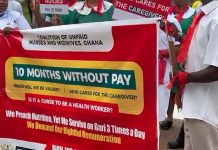

















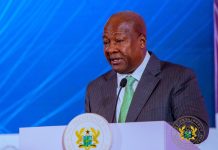
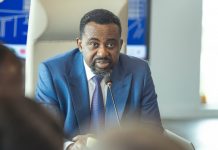
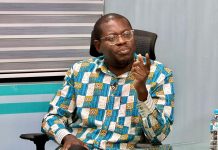

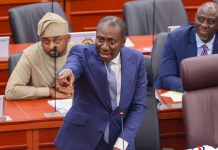
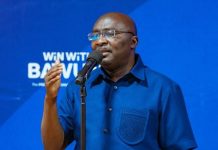















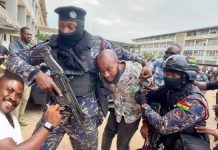
![[FREE FREE MONEY] Predict and Win a Guaranteed GH¢200 From Us EVERY WEEK](https://wordpress.ghanatalksradio.com/wp-content/uploads/2022/02/Predict-and-Win-Final-09-03-2021-218x150.jpg)
![[Predict & Win – 8th/Oct.] WIN A Guaranteed ¢200 From Us This Week](https://wordpress.ghanatalksradio.com/wp-content/uploads/2021/10/maxresdefault-16-218x150.jpg)
![[Predict & Win – 2nd] WIN A Guaranteed ¢200 From Us This Week](https://wordpress.ghanatalksradio.com/wp-content/uploads/2021/09/maxresdefault-50-218x150.jpg)
![[Predict & Win – 25th] WIN A Guaranteed ¢200 From Us This Week](https://wordpress.ghanatalksradio.com/wp-content/uploads/2021/09/maxresdefault-36-218x150.jpg)
![[Predict & Win – 18th] WIN A Guaranteed ¢200 From Us This Week](https://wordpress.ghanatalksradio.com/wp-content/uploads/2021/09/maxresdefault-23-218x150.jpg)
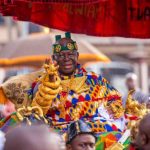
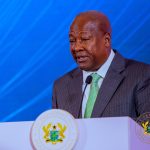
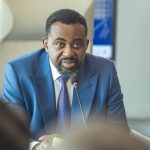





![[National cathedral] See full list of churches that have contributed since 2018](https://wordpress.ghanatalksradio.com/wp-content/uploads/2020/09/Ghana-National-Cathedral-GhanaTalksRadio-100x70.jpg)



